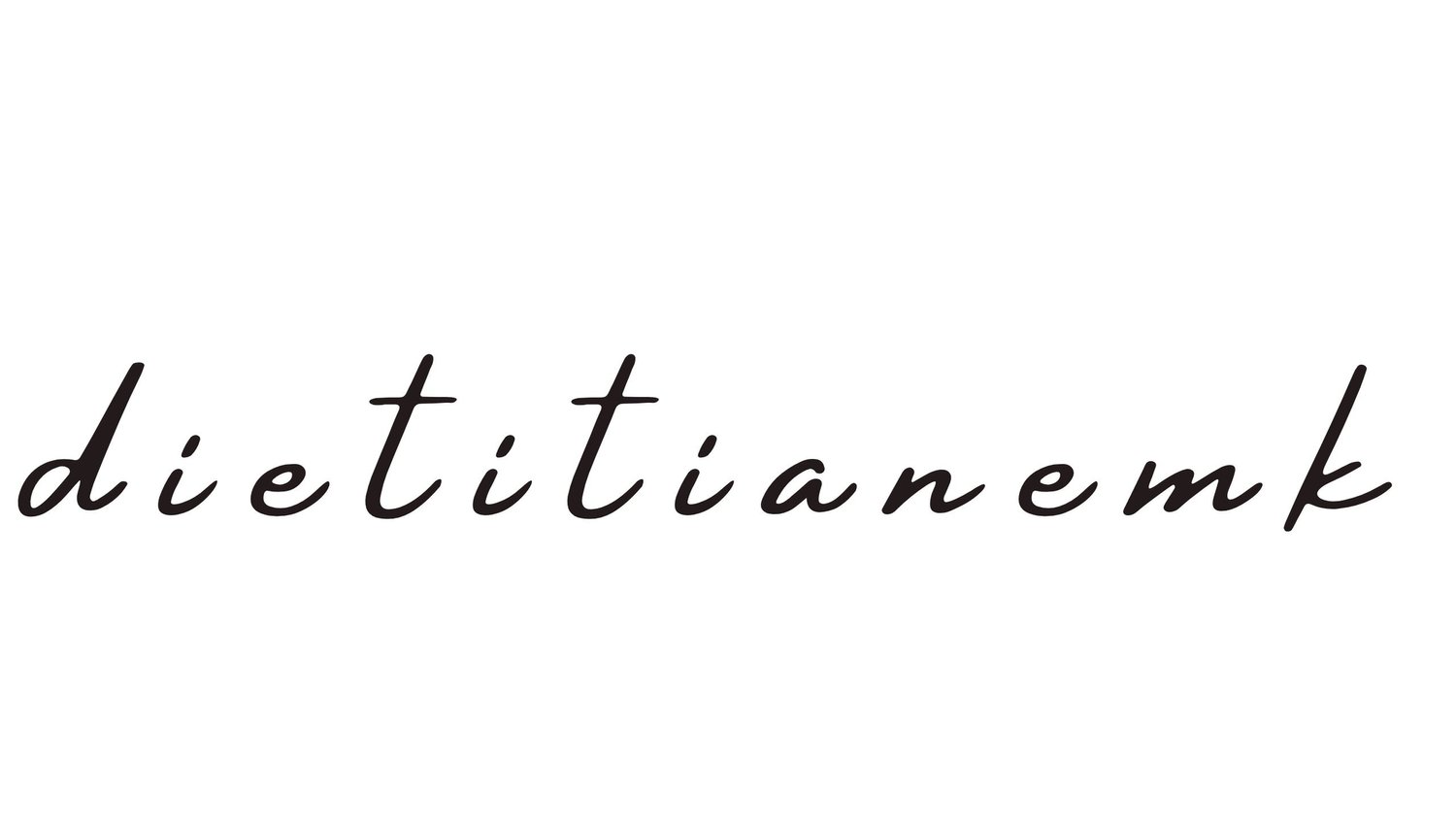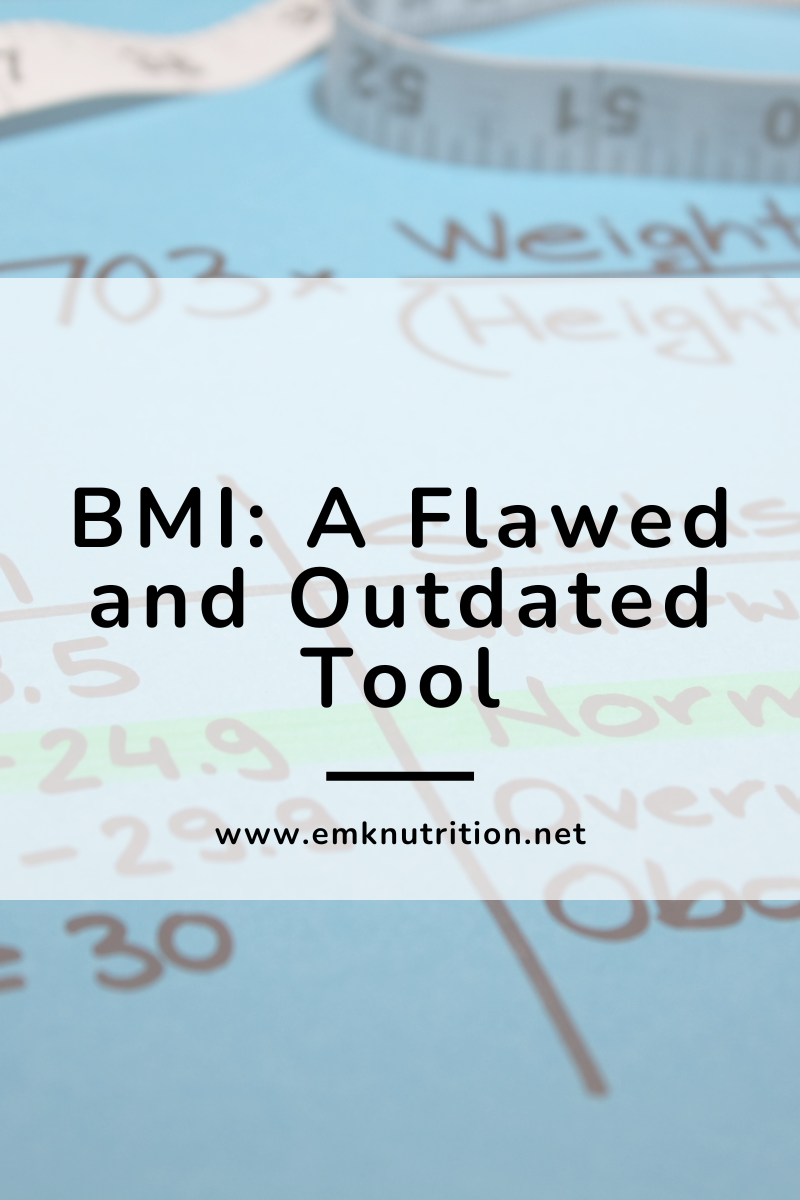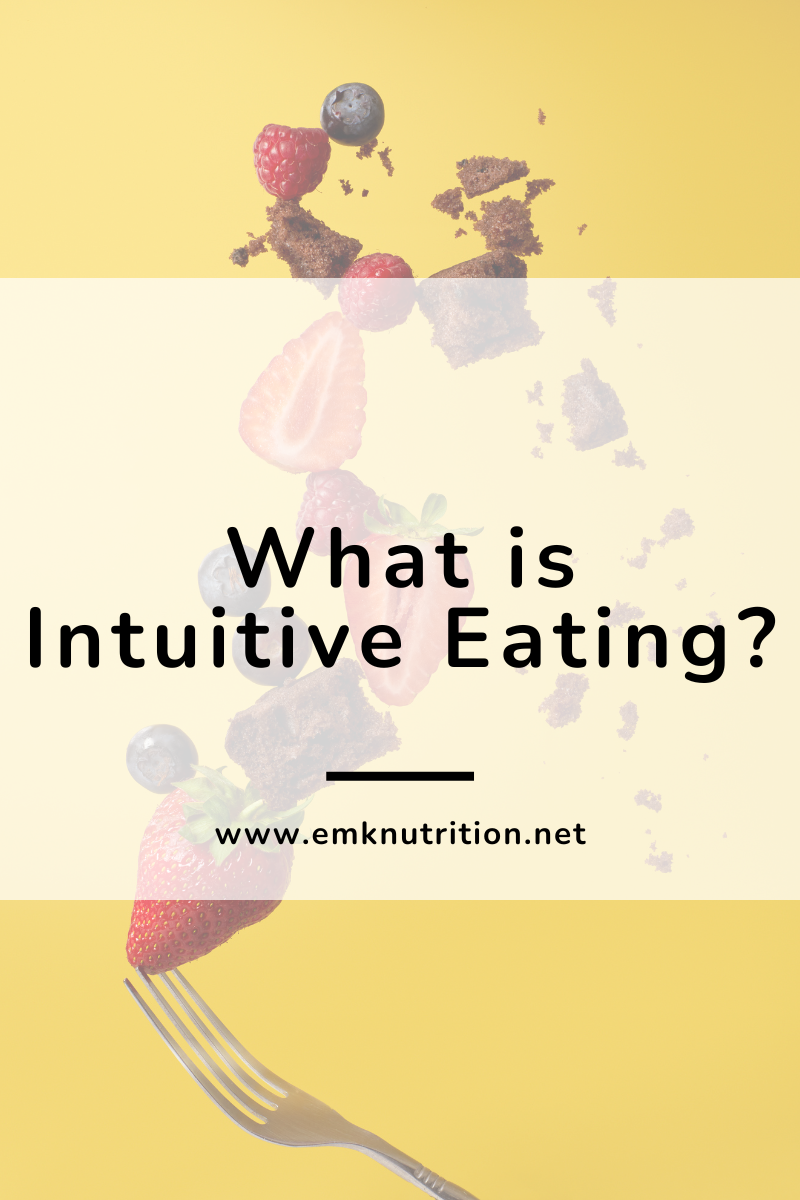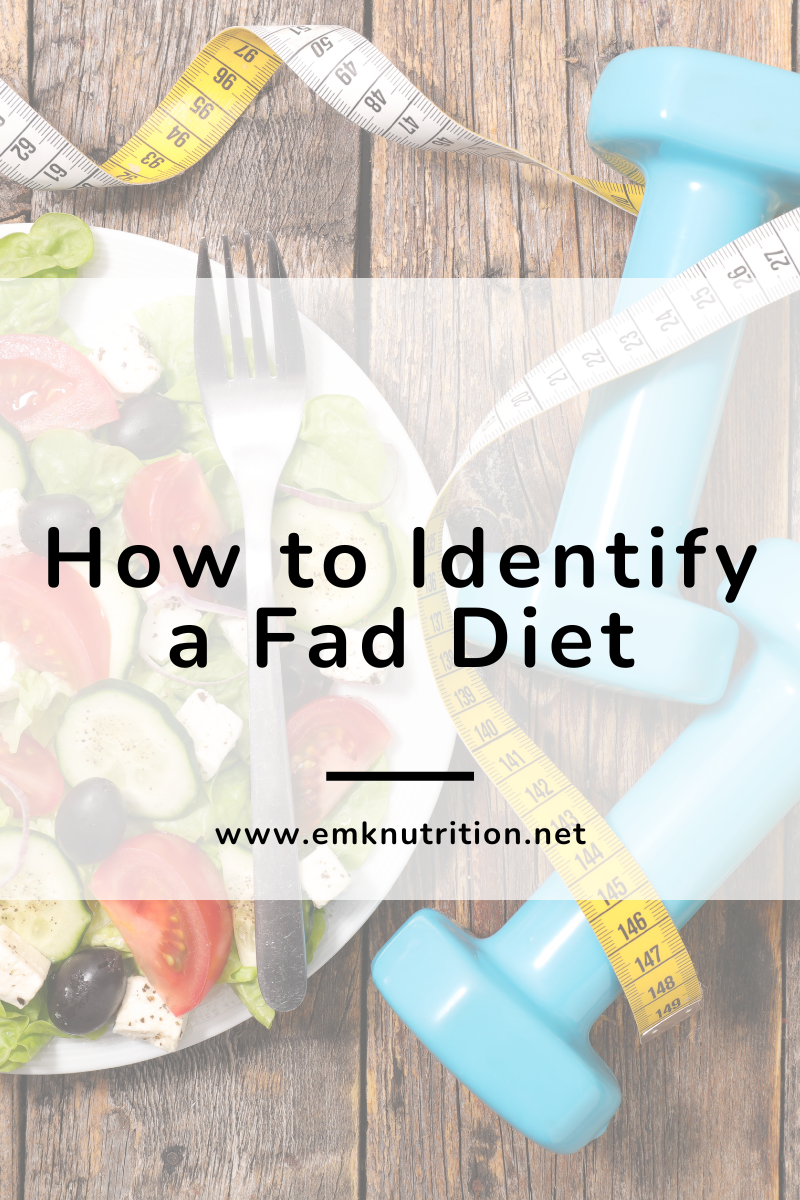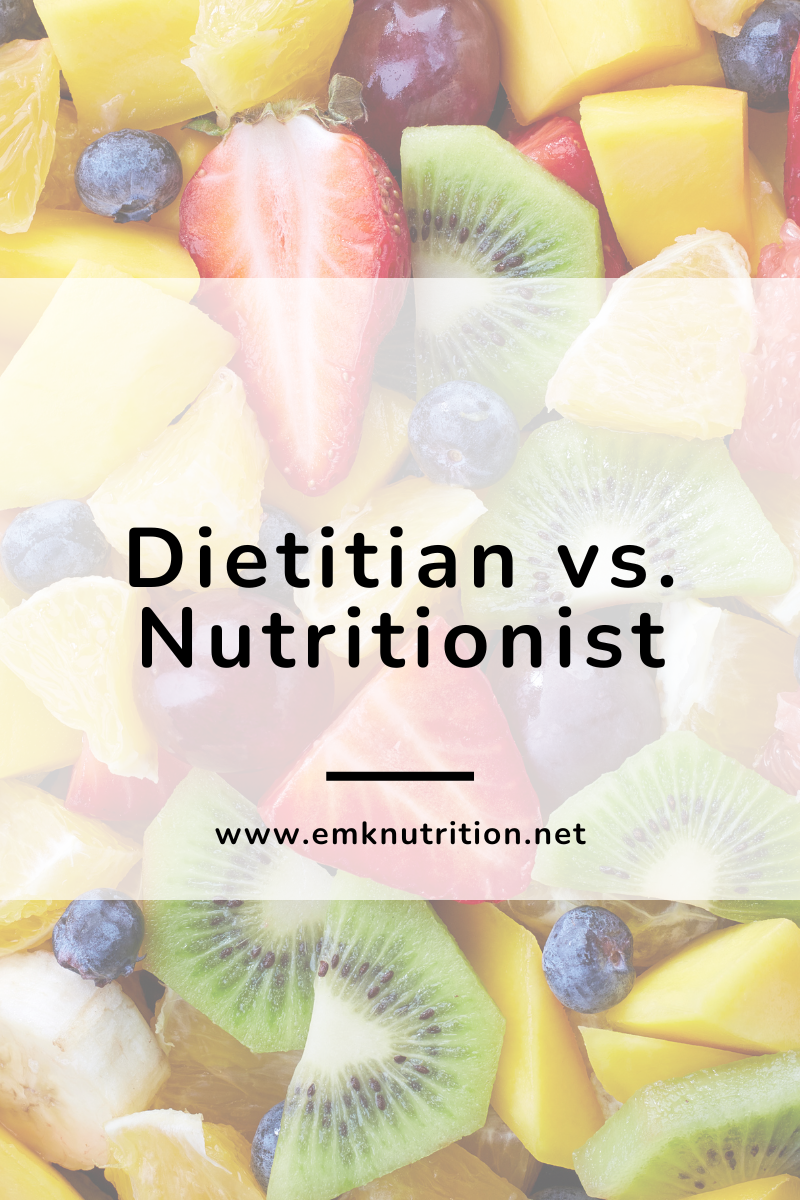How to Identify a Fad Diet
Written by Emily Krause, MS, RDN
An easy guide to identify whether this new diet may be sustainable or if it’s a scam.
The diet culture world is full of new lifestyle and wellness plans. It can be tricky navigating it all. And before you spend money on something, wouldn’t you want to know beforehand if it’s a potential scam?
Here are some of my dietitian-approved tricks to identifying fad diets.
Promises Quick Results (i.e. “lose 20 pounds in 2 weeks”)
Oftentimes if the program promises your end result in a very short amount of time, it isn’t sustainable. Sustainable changes take time and practice to become consistent with. In the case of weight loss, your body losing that much weight in a short period of time would most likely be more water weight than fat loss.
Limits Food Groups
Anytime there is demonization of a specific food or food groups… Peace. It’s been fun. No ONE food is going to change the trajectory of your health. It’s giving fear mongering. It’s giving very pro-diet, not anti-diet.
Overemphasis of One Food
On the other hand, if one food promises it’ll “detox your body,” “cure your asthma,” or “cure cancer” it’s likely not true. No one food can cure diseases or detox your body. Detoxing is a whole other thing… Putting one food on a pedestal is an automatic red flag. *cough* looking at you, celery juice. *cough*
“Good” vs. “Bad” Foods List
Any types of programs that promote morality around food you should be wary of. Oftentimes this leads to demonization and romanticization of foods. This can lead to feeling guilty when eating a “bad” food or rewarding yourself after you eat “good” foods. In the long run, this will damage your relationship with food and make it more challenging to embrace food freedom. This also might not appear in a “good vs. bad” way. This could look like different points assigned to foods or different color categories with different foods (i.e. the “traffic light” diagram).
Promotes a Low Calorie Diet
This one can be tricky to identify. Most adults need more than 1500 calories a day to keep their organs and body functioning. If anyone is recommending less than 1200 calories per day… run. Other ways a low calorie diet may manifest itself are cutting out an entire macronutrient (we’re looking at you keto), only eating during very limited times of the day, promoting ignoring hunger cues, etc. If you look at the history of fad diets, they all include calorie deficits in some way. Weight Watchers? Low calorie diet with a point system. Keto? Cuts out a macronutrient. Paleo? Cuts out multiple food groups. Intermittent fasting? Only allows 6-8 hours of eating. Once you start picking up on the patterns, it’ll become easy to identify.
Evidence is Based on Before and After Photos
Testimonials (personal statements about one person’s experience) are not strong sources of evidence. They fail to take into account the person’s physical activity levels, genetics, socioeconomic status, access to food, access to healthcare, mental status, and more. The before and after pictures, typically paired with weight loss, only tell you one thing. “Yes, these people are healthier because they lost weight.” Which is an entirely different can of worms that I have a lot to say about. To keep it short for you, weight loss ≠ healthier. And marketing a program’s success by changes in appearances is not it.
Replaces Meals with Supplements
Oh boy. Oh man. This one is a doozy. I didn’t make any notes above about if this person or program is promoting their own supplements, powders, or bars, the diet is a big red flag. But if the program straight up tells you not to eat food and to replace it with some type of supplement like a protein shake or whatnot… Let’s think critically. There’s nothing inherently wrong with protein shakes, for example. They’re great ways to get in extra protein or extra calories if someone has a busy schedule and needs something quick. Promoting reliance on supplements, though? Nah. Big no no. Also, this isn’t entirely the most affordable or accessible. Supplements are EXPENSIVE. Especially if you’re supposed to be taking them regularly.
Includes Buzzwords like “Superfoods,” “Boost Metabolism,” or “Detox”
All of these words are popular marketing terms diet culture has its claws grasped in. They aren’t regulated terms, and they really don’t mean anything for the product. They act like click bait to get people to buy them.
Promises a Timeline
Everyone’s body is different and will react differently to foods, exercise, whatever the new intervention is. You and I could eat and workout the exact same way and our bodies would look different. But for marketing sake, it’s always catchier to advertise a “7 day detox” or “4 week weight loss challenge.” But what happens if you don’t “succeed” during that time? Maybe you feel guilty. Maybe you push yourself harder and to the extreme. But if you go back to the program, what do they tell you? “Try again” or “maybe you didn’t do it correctly.” These timelines aren’t realistic. And you shouldn’t beat yourself up if you felt like a failure because of them.
Sounds Too Good to be True
Unfortunately this is a big one because oftentimes it is. If there was a cure or some change you could make that would dramatically change your life, scientists would have picked up on it. The beauty of the science of nutrition is we’re always learning and it’s always changing. That’s how science works with any topic.
Inflexibility
Sustainable, long-term changes allow flexibility and compromise. If a plan or program is saying you have to follow X X X, otherwise you have to start over… that’s not setting you up for success. Some people have to work multiple jobs. Some people don’t have the same access to time as others. Flexibility is key.
A Hostile Stance towards Science
This one is one of my personal favorites. I’m all for critical thinking and skepticism. I think it’s very important that we shouldn’t just accept things point blank. But, there’s a limit. Phrases like “they don’t want you to know” or “what they’ve been hiding from you” scream fad diet. Because when they gain your trust that they’re the ones you should listen to, I’d bet my savings account they’re trying to sell you something. This one didn’t get a bullet point, but if they’re trying to sell a supplement or something to you that apparently you can’t do the program without… Hmmm. That’s weird. That’s suspicious.
Promises Weight Loss in a Specific Part of the Body
Biologically, it doesn’t work like that. Yes, you can absolutely target different muscle groups to work out and strengthen, but “spot fat reduction” isn’t as accurate as we’d hope. Fat loss happens in different places at different times. Some people may lose fat first in the abdominal area, a lot of women tend to lose it first in their breast region. Weight loss comes down to the individual and genetics plays a big part in it.
Makes You Sh*t Your Brains Out
You’d think I’m kidding, but this is a genuine concern! I don’t want you pooping your brains out! Diarrhea is not a good thing. It can lead to drastic fluid loss and electrolyte loss which could potentially cause dehydration, dizziness, fatigue, muscle cramping, confusion, numbness, or tingling. We typically see diarrhea in the diet culture scene with detoxes. Detoxes are usually money grabbing schemes that don’t really do anything. If you have functioning kidneys, liver, and lungs, you do not need to detox. Period. Periodt. Full stop.
Bottom Line
There are a lot of tricky ways diet culture likes to sneak itself into our lives. These are all great ways to start identifying the fad diets! If you’re someone looking to heal your relationship with food and embrace a mindset closer to intuitive eating, restricting yourself to a fad diet will do more damage than good. The more you start to recognize the red flags, the more of a pro you’ll be at challenging diet culture.
Links included in this blog might be affiliate links. If you purchase a product or service with the links that I provide I may receive a small commission with no additional charge to you. Thank you for your support!
